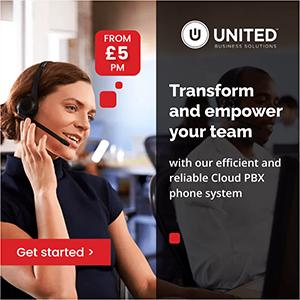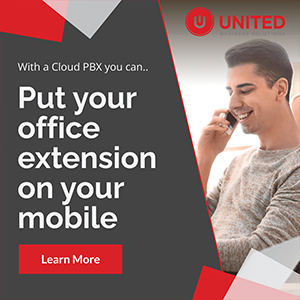Blog
The Ultimate Guide to Non Geographic Numbers in the United Kingdom
Navigating the wide array of communication options available in today’s market poses a significant challenge for businesses. Yet, the solution for establishing a national presence and enhancing your business’s professional image is more accessible than you might expect – it lies in the strategic use of non-geographic numbers (NGNs).
Non-geographic numbers offer an effective solution for both small businesses looking to expand and larger enterprises aiming to streamline their communication processes. This guide aims to provide a detailed understanding of non-geographic numbers in the United Kingdom and how to use them in your business.
Key Takeaways
- Understanding non-geographic numbers is essential for businesses, as they provide numerous advantages.
- A non-geographic number is a virtual telephone number that allows businesses to expand their customer base and generate additional revenue.
- Ofcom acts as an impartial arbiter to ensure fairness in the use of non-geographic telephone number services, allowing UK businesses and their customers to benefit from this technology equitably.
Table of Contents
- Understanding Non-Geographic Numbers
- Types of Non-Geographic Numbers in the UK
- Benefits of Using Non-Geographic Numbers for Businesses
- Implementing Non-Geographic Numbers for Your Business
- Costs and Billing for Non-Geographic Numbers
- Regulatory Framework for Non-Geographic Numbers in the UK
- Final Thoughts on Non Geographic Numbers in the UK
Understanding Non-Geographic Numbers
In today’s competitive business environment, gaining even a small advantage is crucial. Understanding the UK phone number format, especially non-geographic numbers, provides businesses with an essential tool. Non-geographic telephone numbers enhance communication, establish a national presence, and offer an immediate competitive advantage.
Non-geographic telephone numbers offer unparalleled flexibility in the telecommunications sector. Unlike geographic numbers that are linked to specific area codes, NGNs are virtual numbers that are not restricted by geographic boundaries, allowing for greater adaptability and reach in business communications.

What are non-geographic numbers?
Non-geographic numbers are unique virtual telephone numbers that are not confined to a specific geographical area. These numbers provide businesses with the flexibility to route incoming phone calls to any predetermined telephone number, helping them manage and channel calls as needed.
For instance, you can manage non-geographic calls for your London-based business from any location, whether you’re in Manchester or Scotland. This versatility makes them ideal for businesses aiming to expand their customer base and increase revenue.
Geographic vs. non-geographic numbers
Geographic numbers are linked to specific geographic areas and serve as an identifier of a business’s local presence. They are beneficial for businesses targeting a local customer base, as they provide a sense of familiarity and locality to the callers. These numbers typically include area codes that denote a particular region or city, reinforcing the local connection.
On the other hand, non-geographic numbers offer greater versatility and are not confined to any particular location. This flexibility is advantageous for businesses looking to project a national presence or operate in multiple regions.
Non-geographic numbers often include prefixes like 0800 or 0300, which are not associated with any specific area code and are thus ideal for businesses seeking to appeal to a wider, national audience.

Types of Non-Geographic Numbers in the UK
In the UK, businesses and individuals have access to a variety of non-geographic numbers, each tailored to specific communication needs and cost considerations.
These UK phone numbers, distinct from traditional geographic and mobile phone numbers, play a pivotal role in the UK’s communication landscape. Ranging from freephone to premium-rate numbers, each category serves a unique purpose, offering flexibility and functionality to suit different business requirements.
In the following sections, we will delve into each type of non-geographic number in more detail, exploring their specific uses, benefits, and associated costs.
Premium-rate numbers (090, 091, 098)
Premium-rate numbers (090, 091, 098) are a distinct category of telephone numbers in the UK that typically incur higher charges to the callers. These numbers are primarily used for services that offer exclusive content, such as competitions, information lines, and adult entertainment.
The cost to the caller for using these numbers varies, depending on both the service provider and the specific number dialled. This variability in charges is an important consideration for businesses and consumers alike when utilising premium services.
These numbers can be a revenue-generating tool for businesses, balancing the provision of specialised content with the associated costs to the user.
Freephone numbers (0800, 0808)
First introduced by BT in 1985, freephone numbers (0800, 0808) are free for callers to use, making them highly appealing to businesses focused on customer service and call handling.
The advantage of using freephone numbers lies in their potential to substantially increase incoming call volume. Businesses employing these numbers often experience a marked increase in customer engagement, as the lack of call charges encourages people to reach out.
This approach can lead to a significant rise in customer interactions, contributing positively to a business’s national presence and accessibility.
Local/standard-rate numbers (03)
Local/standard-rate numbers (03) in the UK provide a unique advantage for businesses seeking national outreach without the constraints of a specific geographic location. These numbers are charged at national call rates, which are often included in standard phone allowances, thus offering a cost-effective solution for both businesses and their customers.
The appeal of these numbers lies in their accessibility and affordability, making them ideal for companies looking to broaden their customer base across various regions. Unlike regional numbers, the cost of calling local/standard-rate numbers is consistent regardless of the caller’s location, which enhances convenience and encourages wider customer engagement.

National-rate numbers (0870, 0871, 0872, 0873)
National-rate numbers (0870, 0871, 0872, 0873) are a category of non-geographic numbers in the UK, characterised by their higher call charges compared to standard landlines. They are widely used by businesses for various functions, including support lines and information services.
The cost structure of these non-geographic national numbers is an important consideration, as callers are typically charged at an above-standard rate, and this rate can vary depending on the specific number dialled.
These numbers are beneficial for businesses that offer specialised services and require a national reach, but it’s essential for both companies and consumers to be aware of the associated call costs.
Service numbers (0843, 0844, 0845)
Service numbers (0843, 0844, 0845) are essential for customer support and business communication in the UK. They are used by businesses as dedicated lines for customer enquiries and assistance.
They include a service charge, billed to the caller, with costs varying based on the specific number and service provider. These numbers provide a reliable and efficient way for businesses to manage customer interactions, enhance service quality, and maintain clear communication channels.
The transparent cost structure and regulatory oversight ensure that these numbers are used effectively for both business needs and customer convenience.
Corporate numbers (05)
Corporate numbers (05) are a specialised category of telephone numbers in the UK, tailored to the internal communication needs of large organisations. These numbers provide dedicated and easily identifiable phone lines for various internal purposes, such as help desks, employee hotlines, and department-specific communications.
They are designed to facilitate efficient and private communication within an organisation, much like a dedicated internal network.
Additionally, corporate numbers are equipped to support conferencing, offering a reliable and professional solution for conducting internal conference calls. This feature makes them an invaluable tool for large businesses that require seamless and secure communication channels for their operations.
Benefits of Using Non-Geographic Numbers for Businesses
Non-geographic numbers provide a suite of advantages essential for the dynamic needs of modern businesses. They are versatile tools that enhance various aspects of business communication and operations.
The key benefits are that they promote national presence, build customer trust, ensure accessibility, provide location flexibility, facilitate tracking of marketing campaigns, aid in disaster recovery, and support scalability.
In the following sections, we will explore each of these benefits in more detail, highlighting how non-geographic numbers can advance a business’s communication strategy and overall growth.

Promote a national presence and professional image
Utilising non-geographic numbers is a strategic choice for businesses aiming to enhance their national presence and professional image. These numbers allow companies to project an image of greater size and establishment, providing them with the flexibility and accessibility needed to appeal to a wider customer base.
By adopting non-geographic numbers, businesses can extend their reach across the nation, creating opportunities for increased customer engagement. This approach can significantly amplify incoming call volumes, potentially boosting them by up to 300% compared to standard geographic numbers.
The use of non-geographic numbers is thus a powerful way for businesses to elevate their market presence and connect more effectively with customers across the country.
Enhance customer trust and brand consistency
Non-geographic numbers play a crucial role in enhancing customer trust and maintaining brand consistency. They contribute to the business’s brand image, positioning it as reliable and established, which in turn increases customers’ perception of the brand’s trustworthiness.
The consistent and stable nature of these numbers provides a reliable point of contact for customers, reinforcing the professional image of the business. By ensuring that customers can always reach the business through these numbers, non-geographic numbers strengthen customer confidence and loyalty, fostering a positive and lasting relationship between the business and its clientele.
Improve accessibility and mobility
Non-geographic numbers significantly improve accessibility and mobility for businesses, enhancing customer interaction. These numbers allow businesses to be reachable, regardless of geographical location, ensuring consistent communication with customers.
Additionally, the inherent mobility of non-geographic numbers means calls can be routed to any destination, which is particularly advantageous for call management and business continuity during events like office relocations. This feature ensures that customer engagement remains uninterrupted, providing a seamless experience for both the business and its customers.
In terms of forwarding calls to mobile phones or a mobile number, non-geographic numbers offer a versatile solution. These numbers can be configured to redirect calls to designated mobile devices, ensuring that businesses stay connected with their customers, even when on the move. This flexibility enables businesses to provide responsive customer service and maintain accessibility, regardless of their team’s physical location.
Location anonymity
Non-geographic numbers provide location anonymity, a key feature for businesses seeking to withhold their exact geographic location. These telephone numbers, including virtual or VoIP numbers, are not tied to a specific physical location.
This characteristic is particularly advantageous for businesses operating in multiple locations or those who prefer to keep their physical location private.
By using non-geographic numbers, businesses can maintain a presence in various regions without disclosing their actual location, offering flexibility in how they represent their geographical identity to customers.

Track marketing campaigns
Non-geographic numbers provide an effective way to track marketing campaigns. They can be assigned to specific marketing initiatives, enabling businesses to accurately monitor responses and interactions. This capability allows for precise measurement of campaign effectiveness, providing essential data and insights.
By using non-geographic numbers, businesses gain a comprehensive view of their marketing activities, facilitating informed decisions and strategy adjustments based on real-time feedback and customer engagement. This approach is crucial for optimising marketing efforts and ensuring the highest return on investment.
Streamline disaster recovery
Non-geographic numbers provide essential support for businesses during disaster recovery. These numbers offer flexibility and resilience, crucial in scenarios where normal operations are disrupted.
In the event of telephone network issues or physical damage to business premises, calls can be rerouted to alternate locations, ensuring that communication with clients and partners remains continuous. This capability is vital for maintaining uninterrupted business operations, minimising the impact of unforeseen events and preserving the continuity of services.
Non-geographic numbers thus play a critical role in a business’s disaster recovery strategy, providing a reliable backup communication system.
Enable business scalability
Non-geographic numbers are instrumental in enabling businesses to scale effectively, as they provide a platform for a national presence and enhance the professional image of a business. As a business grows, it can continue to manage an increasing volume of inbound calls with the same number, ensuring that customer engagement and communication do not falter during periods of expansion.
This adaptability makes non-geographic numbers a valuable asset for businesses looking to broaden their reach and capabilities without compromising service quality or operational efficiency.
Advanced call management features
Non-geographic numbers come equipped with advanced call management features that can significantly enhance the efficiency and effectiveness of business communications.
These features include call forwarding, which allows calls to be rerouted to different numbers based on specific criteria such as the time of day or caller location. Additionally, businesses can utilise call queuing to manage high call volumes, ensuring that customer calls are attended to in an organised manner. Interactive voice response (IVR) systems can also be integrated with these numbers, providing callers with automated menus and information, thus streamlining the customer experience.
These sophisticated call management tools not only improve the handling of inbound calls but also contribute to a more professional and customer-friendly interface, reinforcing the business’s commitment to excellent service.
Implementing Non-Geographic Numbers for Your Business
Implementing non-geographic numbers in your business is a structured and strategic choice that can significantly enhance your communication systems.
This process includes several key steps: choosing the appropriate type of non-geographic number for your business needs, setting up the new number, integrating these numbers with existing VoIP and cloud-based systems, and utilising advanced technologies such as automation and AI for efficient call management.
In the subsequent sections, we look at each of these steps in detail, providing insights and guidance on how to implement non-geographic numbers to optimise business communication strategies.

Selecting the right type of non-geographic number
Selecting the right type of non-geographic number involves analysing your business’s unique requirements and goals.
Consider the demographics of your target audience; certain types of numbers, like freephone or premium rate, may be more appealing or accessible to them. Your brand image is also crucial. For instance, a freephone number might convey customer-friendliness, while a premium number might suggest exclusive services.
When evaluating call-routing options, think about the flexibility and control you need over incoming calls, such as the ability to redirect calls during busy periods or after hours.
The cost factor should align with your budget and the potential return on investment. Also, consider scalability to ensure that as your business grows, your communication system can adapt without the need for major changes.
This comprehensive assessment will ensure that the non-geographic number you choose supports your business’s communication strategy and enhances overall customer engagement.
Setting up a new non-geographic number
Setting up a new non-geographic number is a critical step in expanding your business’s communication capabilities. This process begins with choosing a telecommunications provider that offers non-geographic numbers. It’s important to select a provider that not only meets your budgetary constraints but also offers the range of services and support your business requires.
Additionally, the features of the number should be considered, such as call forwarding, voicemail services, and integration capabilities with your existing systems. These features can greatly enhance the functionality of the number for your business operations.
After you confirm your preferences, the provider will proceed with the setup of your new non-geographic number.
This process is essential in ensuring that the number supports your business’s communication strategy and customer engagement goals.
Integration with VoIP and cloud-based systems
Integrating non-geographic numbers with VoIP and cloud-based systems offers significant benefits for businesses in terms of efficiency and flexibility.
This integration leads to cost savings, as VoIP and cloud systems typically have lower operational costs compared to traditional telephony. It also streamlines workflows, enabling seamless call management across various platforms and devices.
Improved data integration is another key advantage, allowing for the effective management of customer interactions and personal information. This synergy between non-geographic numbers and modern technologies not only optimises communication processes but also supports remote work and expands global reach. It equips businesses with the tools to adapt to changing market needs, providing a robust framework for customer communication and engagement in a digitally connected world.
Integration with automation and AI for call management
Integrating non-geographic numbers with automation and AI technologies significantly enhances call management capabilities for businesses.
This integration streamlines various communication processes, such as automating sales calls and tracking customer interactions. It also enables the implementation of advanced call centre solutions that leverage natural language processing, facilitating more sophisticated and responsive customer service.
By using AI and automation, businesses can ensure that customer calls are handled more efficiently, reducing wait times and improving overall customer satisfaction. This technology also allows for more personalised customer interactions, as AI can be used to analyse call data to provide tailored responses and support.
The integration of non-geographic numbers with these modern technologies is a substantial step forward in optimising business communication strategies, ensuring that companies can meet the evolving expectations of their customers in the digital age.
Costs and Billing for Non-Geographic Numbers
Understanding the costs and billing associated with non-geographic numbers is essential for businesses looking to utilise these tools. The expenses include setup fees, ongoing monthly charges, and the call rates applicable to different types of non-geographic numbers.
In the following sections, we consider each of these cost components in detail, providing a clear overview of what businesses can expect in terms of financial commitments. This information is crucial for budgeting and making informed decisions about communication strategies, ensuring that the use of non-geographic numbers aligns with both the operational needs and financial resources of the business.

Understanding setup fees and monthly charges
Understanding the setup fees and monthly charges for non-geographic numbers is crucial for effective budget management in business communications.
Setup fees, which vary based on the provider and the type of number, are initial costs for establishing the service, whereas monthly charges are recurring expenses that vary based on the provider and the number’s functionality.
Different types of non-geographic numbers may incur additional costs.
For instance, freephone numbers might have higher monthly charges since they are free to callers, whereas premium-rate numbers could have variable setup costs based on the services offered. Local or national-rate numbers often have more moderate fees.
It’s imperative for businesses to analyse these costs in detail, as they can significantly impact the overall expenses.
Understanding the associated costs ensures that the chosen non-geographic number is both financially feasible and aligned with the business’s communication objectives, avoiding unexpected expenditures and maximising the investment’s value.
Exploring call rates for different types of non-geographic numbers
Exploring the different call rates for various types of non-geographic numbers is an essential step in selecting the right option for your business.
For instance, calls to freephone numbers are typically free for the caller but might incur higher charges for the business. Premium-rate numbers, often used for specialised services, charge the caller at higher rates, which can be a source of revenue for the business. Local- and national-rate numbers typically offer more balanced and economical rates for both parties.
Understanding these different call rates is vital for making an informed decision. It ensures the chosen number supports the business’s communication and financial strategies, balancing cost-effectiveness with customer convenience and service quality.
By identifying these risks and implementing strategic measures to mitigate them, businesses can ensure that asset leasing aligns with their long-term goals and does not expose them to undue financial and operational vulnerabilities.
Regulatory Framework for Non-Geographic Numbers in the UK
The regulatory framework for non-geographic numbers in the UK plays a crucial role in how businesses utilise these services.
Overseen by Ofcom, this framework establishes the rules and guidelines governing the use of non-geographic numbers. To ensure they remain compliant and leverage the benefits of non-geographic numbers within legal boundaries, businesses must have a thorough understanding of the regulatory environment.
In the following sections, we explore the specifics of this regulatory framework, providing insights into how businesses can navigate and use non-geographic numbers to their strategic advantage.

Ofcom’s role in regulation
Ofcom maintains fair practices and transparency within the telecommunications industry.
As the regulatory authority, Ofcom is responsible for establishing and enforcing policies and regulations related to the use and pricing of non-geographic numbers. These regulations are designed to protect consumers by ensuring that pricing is clear and fair and that the services provided are aligned with the relevant standards.
Ofcom oversees compliance with these regulations and takes appropriate action in cases of non-compliance. This regulatory framework maintains a balanced and competitive market, where businesses can offer non-geographic number services while ensuring consumer rights and interests are safeguarded.
Understanding Ofcom’s regulations is crucial for businesses that use non-geographic numbers to ensure they operate within the legal framework and maintain transparent practices.
Past Ofcom changes and proposals
Staying informed about Ofcom’s changes and proposals is critical for businesses using non-geographic numbers.
Ofcom regularly updates its regulations to reflect the evolving telecommunications industry, ensuring that practices remain relevant and fair.
Past updates have included modifications in the pricing structure of these numbers, such as capping the cost of calls to certain non-geographic numbers to protect consumers from excessive charges. There have also been changes in the transparency requirements, mandating clearer pricing information to be provided by service providers.
Additionally, Ofcom has introduced measures to streamline number allocation and management, enhancing efficiency and accessibility for both users and providers.
Keeping abreast of these changes ensures that businesses can adjust their strategies, remain compliant, and leverage the most current practices in their telecommunications approach.

Final Thoughts on Non Geographic Numbers in the UK
Non-geographic numbers play a pivotal role for UK businesses, leading the way towards broader national reach and elevated customer service standards. They offer a host of advantages, including bolstering customer trust, enhancing accessibility, and facilitating business growth.
When implemented appropriately, non-geographic numbers have the potential to revolutionise business communications for UK enterprises. They empower businesses to establish a national presence, cultivate a polished corporate image, and excel in customer service. With the right knowledge, strategic choices, and seamless implementation, UK businesses can harness the potential of non-geographic numbers to gain a competitive edge and expand their operations.
Why confine your business to local boundaries when non-geographic numbers can propel you onto the national stage? To explore tailored solutions and get expert guidance for implementing non-geographic numbers in your business, contact United Telecoms UK. Discover how these numbers can reshape your business presence and elevate your customer interactions.







Got questions? Contact our experts today.
We service the following locations across London and the United Kingdom
Greater London: City of London, Hounslow, Barking and Dagenham, Islington, Barnet, Kensington and Chelsea, Bexley, Kingston upon Thames, Brent, Lambeth, Bromley, Lewisham, Camden, Merton Croydon, Newham, Ealing, Redbridge, Enfield, Richmond upon Thames, Greenwich, Southwark, Hackney, Sutton, Hammersmith and Fulham, Tower Hamlets, Haringey, Waltham Forest, Harrow, Wandsworth, Havering, Westminster and Hillingdon.
What Our Customers Say
“Once we approved the installations we were kept up to date daily with the levels of progress on our various sites and were very impressed with the final installation”
Spear Properties
Get In Touch
London Office
2 Osborne Way
Epsom
Surrey
KT19 8GR
United Kingdom (UK)
Tel: 033 1630 0516
Tel: 020 3399 8011
Email: info@united-telecoms.co.uk
We're the experts so that you don't need to be!
PBX Phone System
Beginner's Guide
Voice & Hosted PBX
Resources
PABX Relocation and
Reinstallation
PBX Phone System
Resources